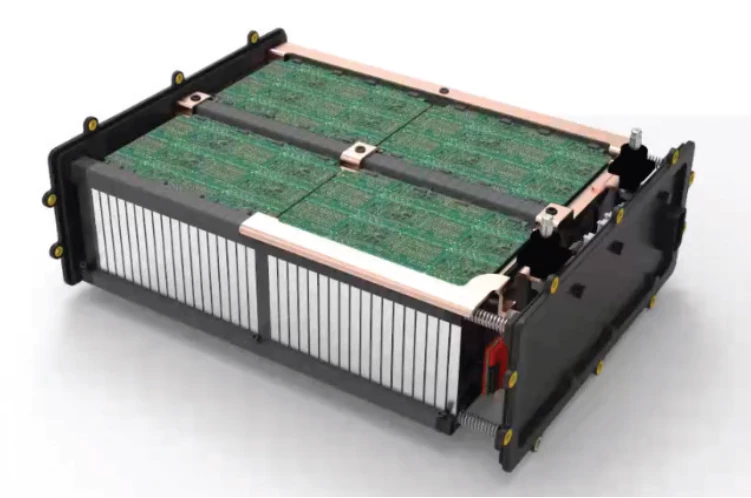German outfit Mahle has teamed up with battery-maker Allotrope Energy to put forward a new fast-charging solution for electric vehicles. The duo's novel lithium-carbon battery borrows elements from the world of supercapacitors to deliver charge times that are on par with the refueling process for internal combustion-powered vehicles, and offers a few other environmental benefits while it's at it.
“Range anxiety is often quoted as the main barrier to electric vehicle adoption, but if the battery could be recharged in the same time it takes to refuel a conventional internal combustion engine vehicle, much of that worry goes away,” says Dr Mike Bassett, Mahle Powertrain’s Head of Research.
Mahle, who earlier this year revealed a cheap electric vehicle motor that uses no magnets, teamed up with Allotrope Energy to turn this type of thinking to electric mopeds, pointing to the increasing use of gasoline-powered variants in cities in response to the on-demand economy. The idea was to develop a cheap, small-capacity lithium-carbon battery that could keep these electric vehicles on the move, with minimal stoppage time required for recharging.
Their solution is made up of high-rate anode seen in traditional lithium-ion batteries, which combines with the type of cathode seen in a supercapacitor, separated by an organic electrolyte. This is claimed to bring the tremendous power density and charging capabilities supercapacitors offer, combined with the superior energy density of lithium batteries, with the resulting lithium-carbon cell offering fast-charging rates of up to 20 kW.

According to analysis carried out on a simulated fast food service with a 25-km (15-mile) radius, using a conventional 500-Wh battery would require electric mopeds to pull over mid-shift and spend 30 minutes recharging. For the sake of comparison, the team says its novel battery pack could recharge these vehicles in 90 seconds thanks to its ultra-fast charging rate.
In addition, the team's lithium-carbon battery uses no rare-earth metals and is entirely recyclable, and is also claimed not to be susceptible to thermal runaway events that can cause batteries to overheat and be destroyed.
“With the rise of the on-demand economy, there’s been a rapid increase in the use of petrol-powered mopeds for urban deliveries such as take-away meals, and this has contributed to air quality issues in our cities,” says Bassett. “Decarbonizing these deliveries has so far proved difficult without maintaining a stock of expensive interchangeable batteries or switching to a larger, heavier electric vehicle with increased energy consumption.”
Bassett presented the breakthrough at the Cenex Low Carbon Vehicle show in the UK this week.
Source: Mahle




